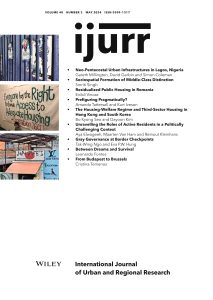The third sector has recently emerged, or re-emerged, as a new housing provider for disadvantaged groups in Hong Kong and Korea, where affordable housing development has been predominantly directed by government. However, our knowledge of third-sector housing in non-Western contexts remains partial. In this article, we aim to provide, from a historical-institutionalist perspective, a comparative account of the (re-)emergence and implementation of third-sector affordable housing delivery in Hong Kong and Korea. Based on the housing-welfare regime framework, we discuss the socioeconomic and political contexts in which third-sector housing has burgeoned in the two regions, and how the relationship between the government and the third sector has moulded the implementation of third-sector housing. We highlight the significant power of the government in implementing third-sector housing and third-sector organizations’ continued complementary role to the government in supplying housing as welfare, which reflects the path-dependent nature of housing and welfare policies in the two regions. Adopting a long view to understanding history and a broader framework that reflects the socioeconomic context contributes to advancing the comparative housing literature.
Details
Written by:
Bo Kyong Seo & Dayoon Kim
Digital Object Identifier (DOI)
https://doi.org/10.1111/1468-2427.13231
About DOI

